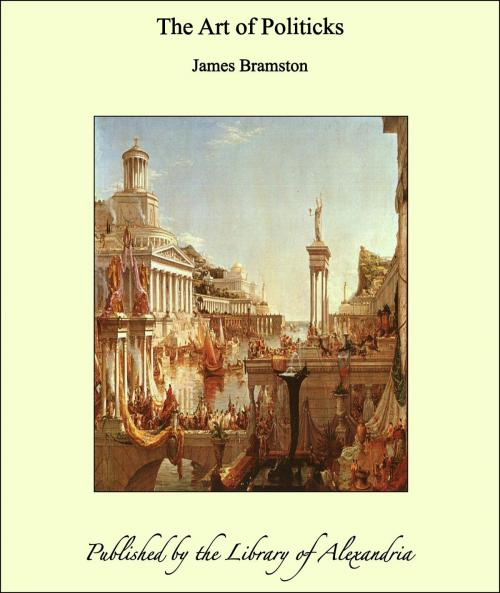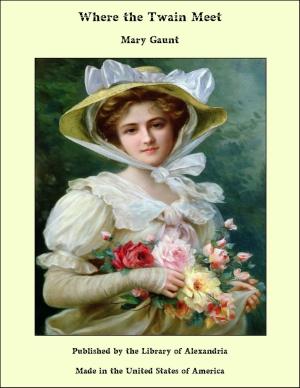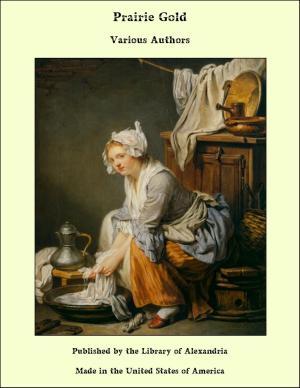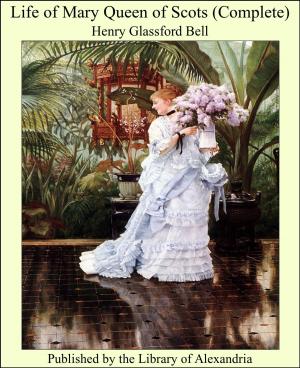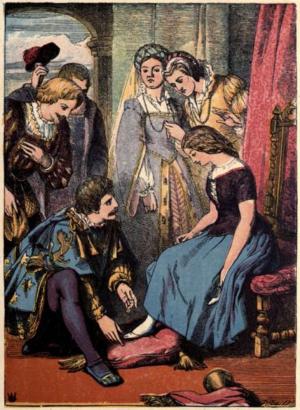| Author: | James Bramston | ISBN: | 9781465554420 |
| Publisher: | Library of Alexandria | Publication: | March 8, 2015 |
| Imprint: | Language: | English |
| Author: | James Bramston |
| ISBN: | 9781465554420 |
| Publisher: | Library of Alexandria |
| Publication: | March 8, 2015 |
| Imprint: | |
| Language: | English |
It seems likely that the poem was completed in the summer of 1729. The most recent events that Bramston alludes to are Thomas Woolston's trial for blasphemy of 4 March (p. 27) and Sir Paul Methuen's resignation as Treasurer of the King's Household, which was reported in May (p. 13). [D] Horace's Ars Poetica was one of the most fertile sources for eighteenth-century imitations and adaptations. Some were completely serious attempts to marry one art to another or to show that all arts share the same fundamental principles; an example of this type is John Gwynn's Art of Architecture (1742; ARS 144). Others, like William King's Art of Cookery (1708) are downright burlesques. Bramston's usual method falls somewhere between these extremes. He often uses the dignity of poetry to show up the indignity of politics or political writing, as on pp. 5-6 where Horace's advice on choice of subject is transformed into advice to "Weekly Writers of seditious News," or on page 7, where the rise and fall of South Sea stock fills the place of Horace's famous comparison of archaic and new-coined words to the leaves of the forest. But Bramston's poem more often aspires to the same level as its model; in this respect it resembles Absalom and Achitophel more than Mac Flecknoe. Though he does not pretend to Pope's image of himself as a new Horace bringing the whole weight of Roman tradition to bear on contemporary society, Bramston is very clever on the local level at transposing Horace for his own purposes. Horace recounts the increasing complexity and sophistication of theatrical music, Bramston the increasingly elaborated musical celebrations of victorious candidates (pp. 22-23), and Horace's implication that the sophistication of taste is really a decline—"an impetuous style brought in an unwonted diction" (217)—constitutes an unspoken comment on Bramston's subject. [E] Bramston's page 27 corresponds to Horace's brief history of the theatre, from Thespis's tragedies that he staged on wagons to the silencing of the excessively outspoken chorus of Old Comedy (275-84). Bramston replaces Thespis with Defoe, and the wagon-mounted stage with the cart and pillory. Instead of deploring the silencing of the chorus, Bramston applauds the silencing of Woolston. The contrast between Thespis and Defoe is clearly mock-heroic, but Bramston implies that Woolston's similarity to an ancient satyr is a decline from the character expected of a modern clergyman
It seems likely that the poem was completed in the summer of 1729. The most recent events that Bramston alludes to are Thomas Woolston's trial for blasphemy of 4 March (p. 27) and Sir Paul Methuen's resignation as Treasurer of the King's Household, which was reported in May (p. 13). [D] Horace's Ars Poetica was one of the most fertile sources for eighteenth-century imitations and adaptations. Some were completely serious attempts to marry one art to another or to show that all arts share the same fundamental principles; an example of this type is John Gwynn's Art of Architecture (1742; ARS 144). Others, like William King's Art of Cookery (1708) are downright burlesques. Bramston's usual method falls somewhere between these extremes. He often uses the dignity of poetry to show up the indignity of politics or political writing, as on pp. 5-6 where Horace's advice on choice of subject is transformed into advice to "Weekly Writers of seditious News," or on page 7, where the rise and fall of South Sea stock fills the place of Horace's famous comparison of archaic and new-coined words to the leaves of the forest. But Bramston's poem more often aspires to the same level as its model; in this respect it resembles Absalom and Achitophel more than Mac Flecknoe. Though he does not pretend to Pope's image of himself as a new Horace bringing the whole weight of Roman tradition to bear on contemporary society, Bramston is very clever on the local level at transposing Horace for his own purposes. Horace recounts the increasing complexity and sophistication of theatrical music, Bramston the increasingly elaborated musical celebrations of victorious candidates (pp. 22-23), and Horace's implication that the sophistication of taste is really a decline—"an impetuous style brought in an unwonted diction" (217)—constitutes an unspoken comment on Bramston's subject. [E] Bramston's page 27 corresponds to Horace's brief history of the theatre, from Thespis's tragedies that he staged on wagons to the silencing of the excessively outspoken chorus of Old Comedy (275-84). Bramston replaces Thespis with Defoe, and the wagon-mounted stage with the cart and pillory. Instead of deploring the silencing of the chorus, Bramston applauds the silencing of Woolston. The contrast between Thespis and Defoe is clearly mock-heroic, but Bramston implies that Woolston's similarity to an ancient satyr is a decline from the character expected of a modern clergyman
